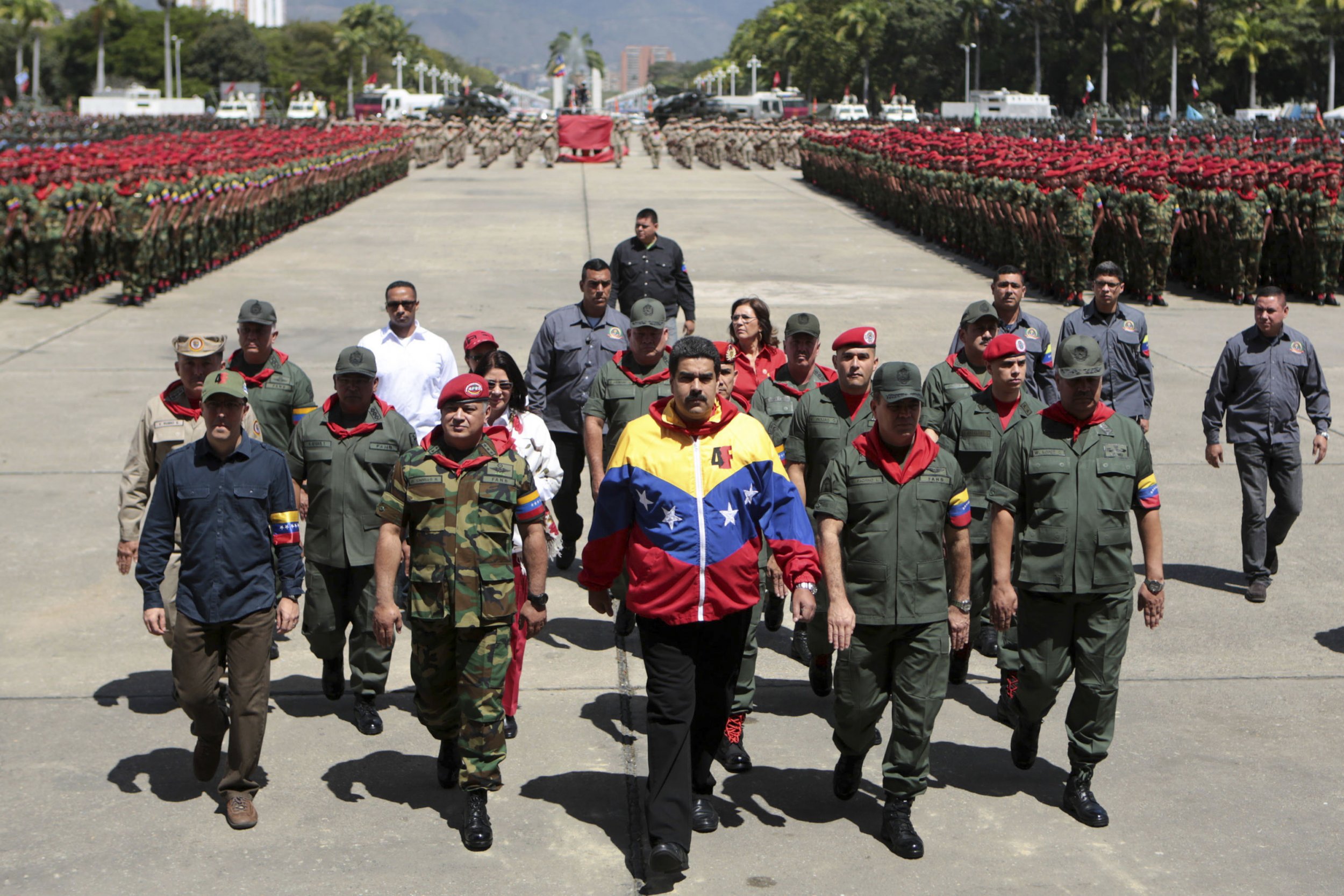
The Trump administration reportedly met with opposition leaders of the Venezuelan military within the past year to discuss plans to overthrow President Nicolás Maduro, according to U.S. officials and a former Venezuelan military commander who was involved, The New York Times reported Saturday.
A current and a former U.S. official later confirmed the report to CNN.
There were reportedly at least three meetings between U.S. and Venezuela military officials since last fall. Ultimately, the U.S. did not aid the rebel leaders and the coup did not take place.
One of the Venezuelan military commanders who was reportedly involved in the talks also has a controversial past. The unnamed man is on the U.S. government's sanctions list because of his corrupt dealings in the South American country, according to The Times.
The Venezuelan military commander, along with others who are part of his opposition, have been accused by the U.S. government of torturing adversaries, detaining hundreds of political prisoners, wounding thousands of civilians, trafficking drugs and working with the Revolutionary Armed Forces of Colombia (FARC), The Times reported. The U.S. currently considers FARC a terrorist organization.
The talks between Trump administration officials and members of the Venezuelan military opposition reportedly broke down after dozens of arrests were made in Venezuela, resulting in a coup to oust Maduro never materializing, The Times reported.
The White House did not answer questions posed by The Times, but said in a statement it was important for the administration to engage in "dialogue with all Venezuelans who demonstrate a desire for democracy" in order to "bring positive change to a country that has suffered so much under Maduro."
Under Maduro's authoritarian regime, Venezuelans have faced an economic crisis and high crime rates as people continue to protest.
Inflation has gripped the country following an economic collapse in 2014, rendering the currency almost worthless. Inflation has been projected by the International Monetary Fund to reach one million percent by the end of this year.
Items next to the amount of Venezuelan Bolivars needed to make the purchase. Hyperinflation puts your financial problems in perspective. #ThursdayThoughts #Venezuela #bitcoin
— Zack Guzman (@zGuz) August 23, 2018
(Phenomenal photo journalism by Reuters' @carlosrawlins) pic.twitter.com/QWQ0wtQfor
In August, President Donald Trump suggested military action was something the U.S. "certainly could pursue. I am not going to rule out a military option," Trump added.
Republican Senator Marco Rubio of Florida, a longtime critic of Maduro, echoed those remarks in late-August.
"For months and years, I wanted the solution in Venezuela to be a non-military and peaceful solution, simply to restore democracy," Rubio said. "I believe that the Armed Forces of the United States are only used in the event of a threat to national security. I believe that there is a very strong argument that can be made at this time that Venezuela and the Maduro regime has become a threat to the region and even to the United States."
Critics of military action, former members of the National Security Council and others have advised against such action.
Geoff Ramsey, the assistant director for Advocacy for Human Rights in the Americas' Venezuela program, known as WOLA, told Newsweek earlier this month he believed military action was not the answer. It's a complex crisis that he believed military action could derail any diplomatic progress that's already in place.
"The idea that the Venezuelan crisis is a national security threat is not a position shared by the majority of Venezuelans or even among leaders of the Venezuelan opposition itself," Ramsey said. "The solution needs to be some combination of the current international strategy of pairing multilateral pressure on the Venezuelan government through sanctions…paired with engagement that leads to fair elections."
Trump himself has been compared with Maduro.
Uncommon Knowledge
Newsweek is committed to challenging conventional wisdom and finding connections in the search for common ground.
Newsweek is committed to challenging conventional wisdom and finding connections in the search for common ground.
About the writer
Ramsey Touchberry is a Washington Correspondent for Newsweek based in the nation's capital, where he regularly covers Congress.
Prior to ... Read more
To read how Newsweek uses AI as a newsroom tool, Click here.








